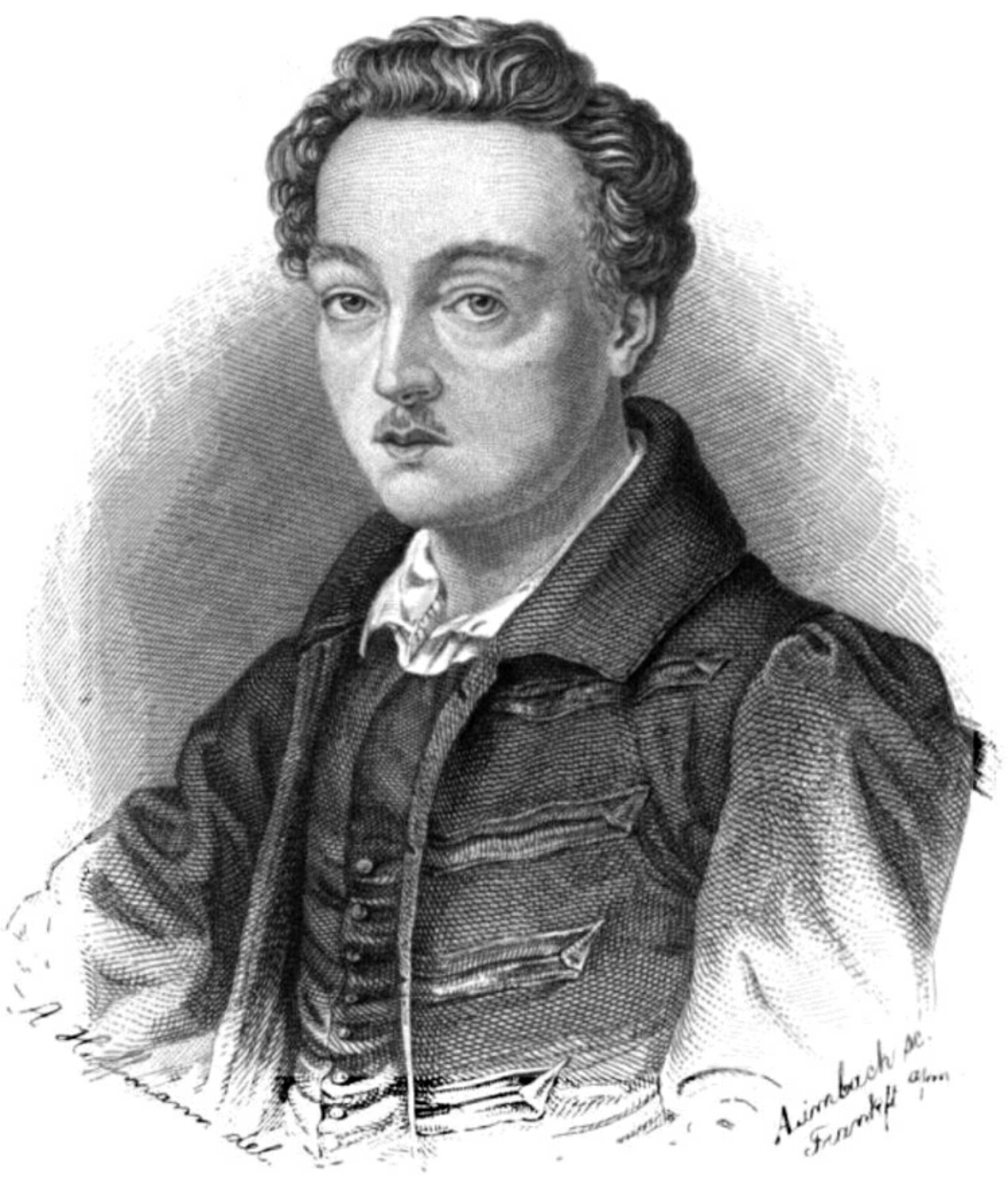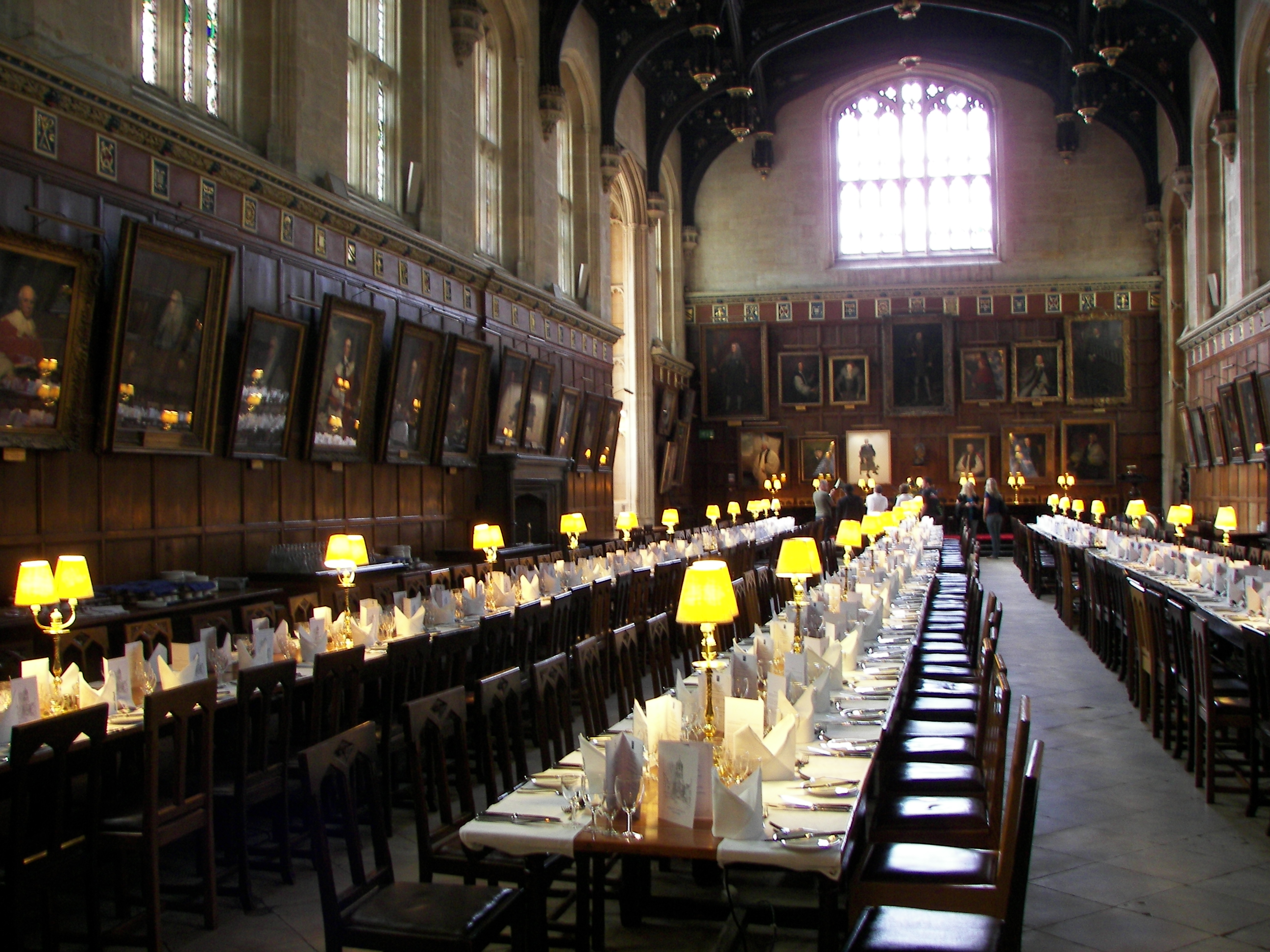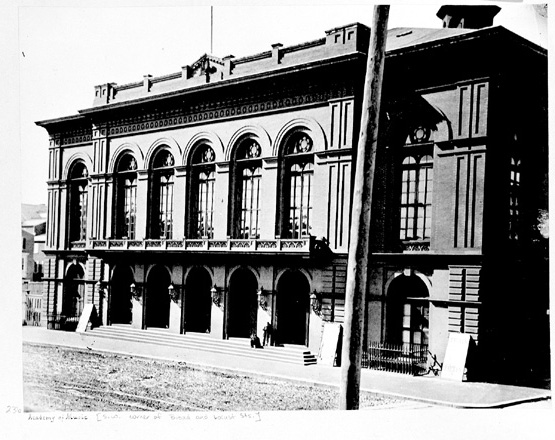|
Wozzeck
''Wozzeck'' () is the first opera by the Austrian composer Alban Berg. It was composed between 1914 and 1922 and first performed in 1925. The opera is based on the drama ''Woyzeck'', which the German playwright Georg Büchner left incomplete at his death. Berg attended the first production in Vienna of Büchner's play on 5 May 1914, and knew at once that he wanted to base an opera on it. (At the time, the play was still known as ''Wozzeck'', due to an incorrect transcription by Karl Emil Franzos, who was working from a barely-legible manuscript; the correct title would not emerge until 1921.) From the fragments of unordered scenes left by Büchner, Berg selected 15 to form a compact structure of three acts with five scenes each. He adapted the libretto himself, retaining "the essential character of the play, with its many short scenes, its abrupt and sometimes brutal language, and its stark, if haunted, realism..." The plot depicts the everyday lives of soldiers and the townspeopl ... [...More Info...] [...Related Items...] OR: [Wikipedia] [Google] [Baidu] |
Alban Berg
Alban Maria Johannes Berg ( , ; 9 February 1885 – 24 December 1935) was an Austrian composer of the Second Viennese School. His compositional style combined Romantic lyricism with the twelve-tone technique. Although he left a relatively small ''oeuvre'', he is remembered as one of the most important composers of the 20th century for his expressive style encompassing "entire worlds of emotion and structure". Berg was born and lived in Vienna. He began to compose only at the age of fifteen. He studied counterpoint, music theory and harmony with Arnold Schoenberg between 1904 and 1911, and adopted his principles of ''developing variation'' and the twelve-tone technique. Berg's major works include the operas ''Wozzeck'' (1924) and ''Lulu'' (1935, finished posthumously), the chamber pieces '' Lyric Suite'' and Chamber Concerto, as well as a Violin Concerto. He also composed a number of songs ('' lieder''). He is said to have brought more "human values" to the twelve-tone system, ... [...More Info...] [...Related Items...] OR: [Wikipedia] [Google] [Baidu] |
Woyzeck
''Woyzeck'' () is a stage play written by Georg Büchner. Büchner wrote the play between July and October 1836, yet left it incomplete at his death in February 1837. The play first appeared in 1877 in a heavily edited version by Karl Emil Franzos, and was first performed at the Residence Theatre in Munich on 8 November 1913. Since then, ''Woyzeck'' has become one of the most influential and most often-performed German plays. Due to its unfinished nature, the play has inspired many diverging adaptations. Composition and textual history Büchner probably began writing the play between June and September 1836. It is loosely based on the true story of Johann Christian Woyzeck, a Leipzig wigmaker who later became a soldier. In 1821, Woyzeck, in a fit of jealousy, murdered Christiane Woost, a 46-year-old widow with whom he had been living; he was later publicly beheaded. Büchner's work remained in a fragmentary state at the time of his early death in 1837. The play was first ... [...More Info...] [...Related Items...] OR: [Wikipedia] [Google] [Baidu] |
Karl Emil Franzos
Karl Emil Franzos (25 October 184828 January 1904) was a popular Austrian novelist of the late 19th century. His works, both reportage and fiction, concentrate on the multi-ethnic corner of Galicia, Podolia and Bukovina, now largely in western Ukraine, where the Habsburg and Russian empires met. This area became so closely associated with his name that one critic called it "Franzos country". A number of his books were translated into English, and Gladstone is said to have been among his admirers. Life Karl Emil Franzos was born near the town of Czortków (Chortkiv) in the eastern, Podolian region of the Austrian Kingdom of Galicia. His family came from Sephardi Spanish Jews who fled the Inquisition to Holland and later settled in Lorraine. In the 1770s his great-grandfather established a factory for one of his sons in East Galicia, part of the Habsburg monarchy since the First Partition of Poland in 1772. When the Austrian administration required Jews to adopt surnames, "Franzo ... [...More Info...] [...Related Items...] OR: [Wikipedia] [Google] [Baidu] |
Edward Clark (conductor)
Thomas Edward Clark (10 May 188830 April 1962) was an English conductor and music producer for the BBC. Through his positions in leading new music organizations and his wide-ranging contacts with British and European composers, he had a major impact on making contemporary classical music available to the British public for over 30 years. He was a leading figure in the BBC's Concerts of Contemporary Music between 1926 and 1939, and he played a significant role in the founding and early development of the BBC Symphony Orchestra. He held prominent positions in the International Society for Contemporary Music (ISCM) from its inception in 1922, and was its president from 1947 to 1952. He was responsible for producing a number of important world and British premieres (some of which he also conducted), and he was associated with most of the important European and British composers, such as Arnold Schoenberg, Anton Webern, Alban Berg, Ferruccio Busoni, Igor Stravinsky, Béla Bartók ... [...More Info...] [...Related Items...] OR: [Wikipedia] [Google] [Baidu] |
Erich Kleiber
Erich Kleiber (5 August 1890 – 27 January 1956) was an Austrian, later Argentine, conductor, known for his interpretations of the classics and as an advocate of new music. Kleiber was born in Vienna, and after studying at the Prague Conservatory, he followed the traditional route for an aspiring conductor in German-speaking countries of the time, starting as a répétiteur in an opera house and moving into conducting in increasingly senior positions. After holding posts in Darmstadt (1912), Barmen-Elberfeld (1919), Düsseldorf (1921) and Mannheim (1922) he was appointed in 1923 to the important post of musical director of the Berlin State Opera. In Berlin, Kleiber's scrupulous musicianship and enterprising programming won him a high reputation, but after the Nazi Party came to power in Germany in 1933, he resigned in protest against its oppressive policies, and left the country, basing himself and his family in Buenos Aires. For the rest of his career he was a freelance, guest ... [...More Info...] [...Related Items...] OR: [Wikipedia] [Google] [Baidu] |
Adrian Boult
Sir Adrian Cedric Boult, CH (; 8 April 1889 – 22 February 1983) was an English conductor. Brought up in a prosperous mercantile family, he followed musical studies in England and at Leipzig, Germany, with early conducting work in London for the Royal Opera House and Sergei Diaghilev's ballet company. His first prominent post was conductor of the City of Birmingham Orchestra in 1924. When the British Broadcasting Corporation appointed him director of music in 1930, he established the BBC Symphony Orchestra and became its chief conductor. The orchestra set standards of excellence that were rivalled in Britain only by the London Philharmonic Orchestra (LPO), founded two years later. Forced to leave the BBC in 1950 on reaching retirement age, Boult took on the chief conductorship of the LPO. The orchestra had declined from its peak of the 1930s, but under his guidance its fortunes were revived. He retired as its chief conductor in 1957, and later accepted the post of pre ... [...More Info...] [...Related Items...] OR: [Wikipedia] [Google] [Baidu] |
Opera
Opera is a form of theatre in which music is a fundamental component and dramatic roles are taken by singers. Such a "work" (the literal translation of the Italian word "opera") is typically a collaboration between a composer and a librettist and incorporates a number of the performing arts, such as acting, scenery, costume, and sometimes dance or ballet. The performance is typically given in an opera house, accompanied by an orchestra or smaller musical ensemble, which since the early 19th century has been led by a conductor. Although musical theatre is closely related to opera, the two are considered to be distinct from one another. Opera is a key part of the Western classical music tradition. Originally understood as an entirely sung piece, in contrast to a play with songs, opera has come to include numerous genres, including some that include spoken dialogue such as '' Singspiel'' and '' Opéra comique''. In traditional number opera, singers employ two styles of ... [...More Info...] [...Related Items...] OR: [Wikipedia] [Google] [Baidu] |
Libretto
A libretto (Italian for "booklet") is the text used in, or intended for, an extended musical work such as an opera, operetta, masque, oratorio, cantata or Musical theatre, musical. The term ''libretto'' is also sometimes used to refer to the text of major liturgical works, such as the Mass (liturgy), Mass, requiem and sacred cantata, or the story line of a ballet. ''Libretto'' (; plural ''libretti'' ), from Italian, is the diminutive of the word ''wiktionary:libro#Italian, libro'' ("book"). Sometimes other-language equivalents are used for libretti in that language, ''livret'' for French works, ''Textbuch'' for German and ''libreto'' for Spanish. A libretto is distinct from a synopsis or scenario of the plot, in that the libretto contains all the words and stage directions, while a synopsis summarizes the plot. Some ballet historians also use the word ''libretto'' to refer to the 15 to 40 page books which were on sale to 19th century ballet audiences in Paris and contained a ve ... [...More Info...] [...Related Items...] OR: [Wikipedia] [Google] [Baidu] |
BBC Symphony Orchestra
The BBC Symphony Orchestra (BBC SO) is a British orchestra based in London. Founded in 1930, it was the first permanent salaried orchestra in London, and is the only one of the city's five major symphony orchestras not to be self-governing. The BBC SO is the principal broadcast orchestra of the British Broadcasting Corporation (BBC). The orchestra was originally conceived in 1928 as a joint enterprise by the BBC and the conductor Sir Thomas Beecham, but the latter withdrew the next year and the task of assembling and training the orchestra fell to the BBC's director of music, Adrian Boult. Among its guest conductors in its first years was Arturo Toscanini, who judged it the finest orchestra he had ever conducted. During and after the Second World War, Boult strove to maintain standards, but the senior management of the post-war BBC did not allocate the orchestra the resources to meet competition from new and well-funded rivals. After Boult's retirement from the BBC in 1950, ... [...More Info...] [...Related Items...] OR: [Wikipedia] [Google] [Baidu] |
Georg Büchner
Karl Georg Büchner (17 October 1813 – 19 February 1837) was a German dramatist and writer of poetry and prose, considered part of the Young Germany movement. He was also a revolutionary and the brother of physician and philosopher Ludwig Büchner. His literary achievements, though few in number, are generally held in great esteem in Germany and it is widely believed that, had it not been for his early death, he might have joined such central German literary figures as Johann Wolfgang von Goethe and Friedrich Schiller at the summit of their profession. Life and career Born in Goddelau (now part of Riedstadt) in the Grand Duchy of Hesse as the son of a physician, Büchner attended the Darmstadt gymnasium, a humanistic secondary school."Büchner, Georg." Garland, Henry and Mary (Eds.). ''The Oxford Companion to German Literature''. 2nd ed. Oxford: Oxford University Press, 1986. p. 121. In 1828, he became interested in politics and joined a circle of William Shakespeare a ... [...More Info...] [...Related Items...] OR: [Wikipedia] [Google] [Baidu] |
Leopold Stokowski
Leopold Anthony Stokowski (18 April 1882 – 13 September 1977) was a British conductor. One of the leading conductors of the early and mid-20th century, he is best known for his long association with the Philadelphia Orchestra and his appearance in the Disney film ''Fantasia'' with that orchestra. He was especially noted for his free-hand conducting style that spurned the traditional baton and for obtaining a characteristically sumptuous sound from the orchestras he directed. Stokowski was music director of the Cincinnati Symphony Orchestra, the Philadelphia Orchestra, the NBC Symphony Orchestra, New York Philharmonic Symphony Orchestra, the Houston Symphony Orchestra, the Symphony of the Air and many others. He was also the founder of the All-American Youth Orchestra, the New York City Symphony, the Hollywood Bowl Symphony Orchestra and the American Symphony Orchestra. Stokowski conducted the music for and appeared in several Hollywood films, most notably Disney's ''Fant ... [...More Info...] [...Related Items...] OR: [Wikipedia] [Google] [Baidu] |
Philadelphia Grand Opera Company
The Philadelphia Grand Opera Company was the name of four different American opera companies active at the Academy of Music in Philadelphia, Pennsylvania during the twentieth century. The last and best known of the four was founded in November 1954 with the merger of the Philadelphia Civic Grand Opera Company and the Philadelphia La Scala Opera Company. That company in turn merged with the Philadelphia Lyric Opera Company in 1975 to form the Opera Company of Philadelphia. Of the three earlier companies, only one lasted beyond one season; a company founded in 1926 which later became associated with the Curtis Institute of Music in 1929. That company closed its doors in 1932 due to financial reasons during the Great Depression. The first Philadelphia Grand Opera Companies:1916 The first company to be known as the Philadelphia Grand Opera Company (PGOC) was founded in 1916. Its first production, Gaetano Donizetti's ''Lucia di Lammermoor'', opened on December 18 of that year at the Ac ... [...More Info...] [...Related Items...] OR: [Wikipedia] [Google] [Baidu] |

_~1930_©_Max_Fenichel_(1885–1942).jpg)







_wmplayer_2013-04-16.jpg)
